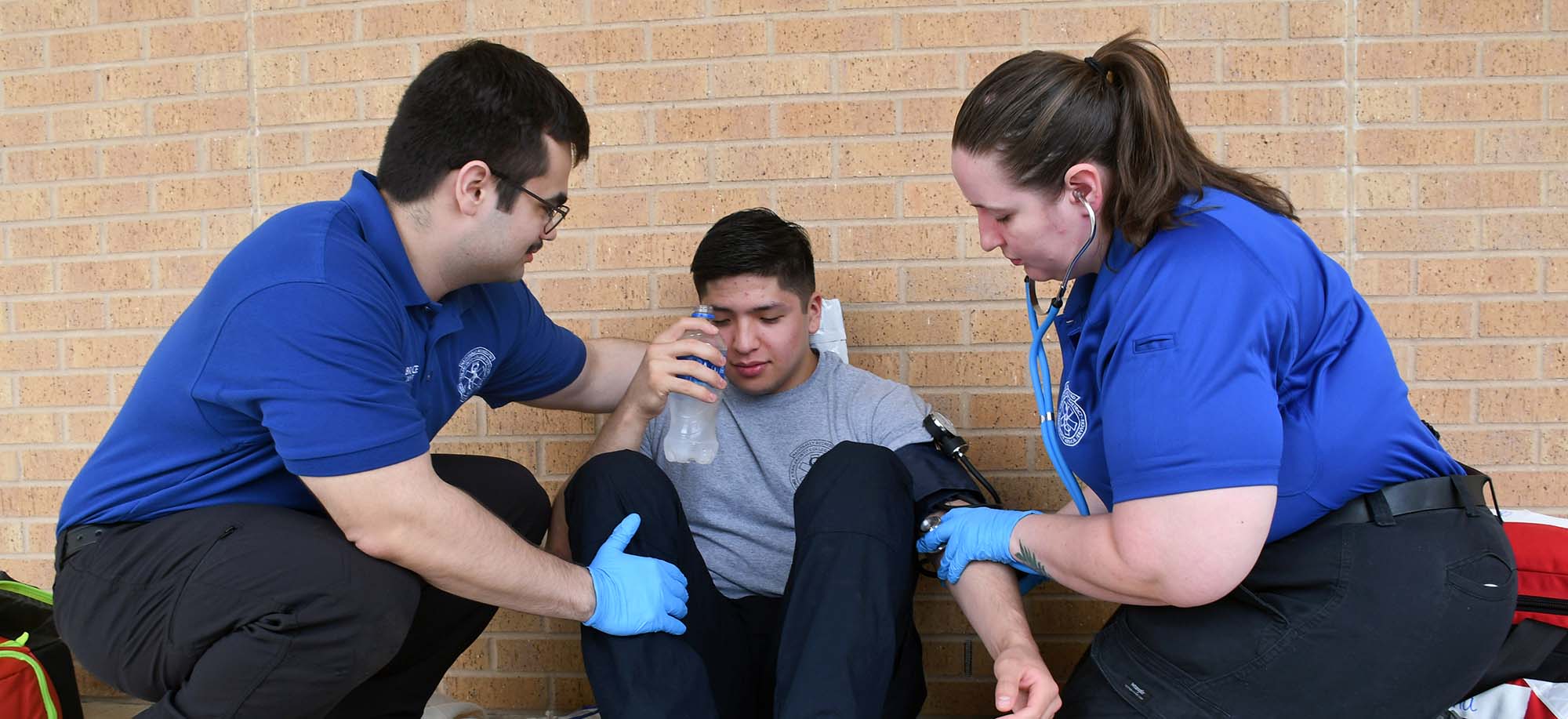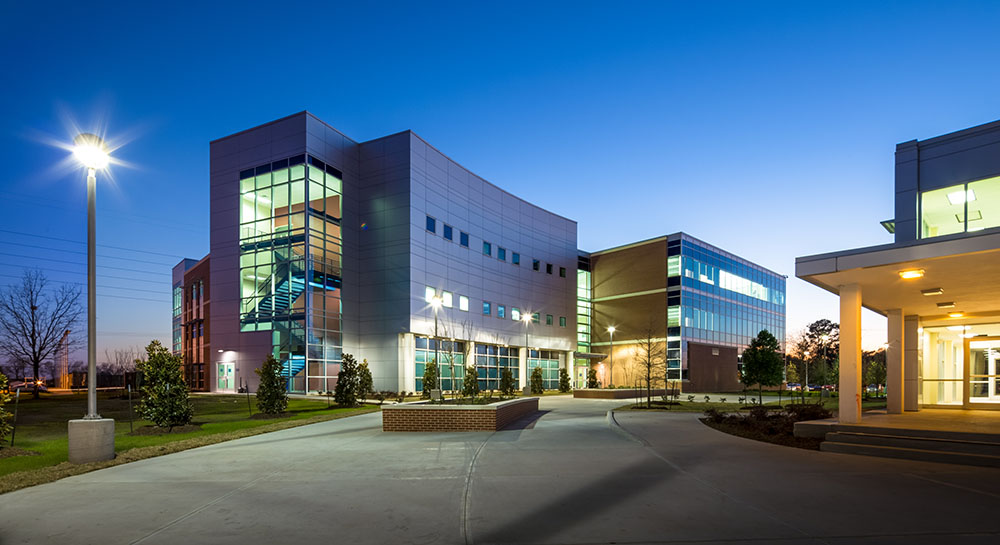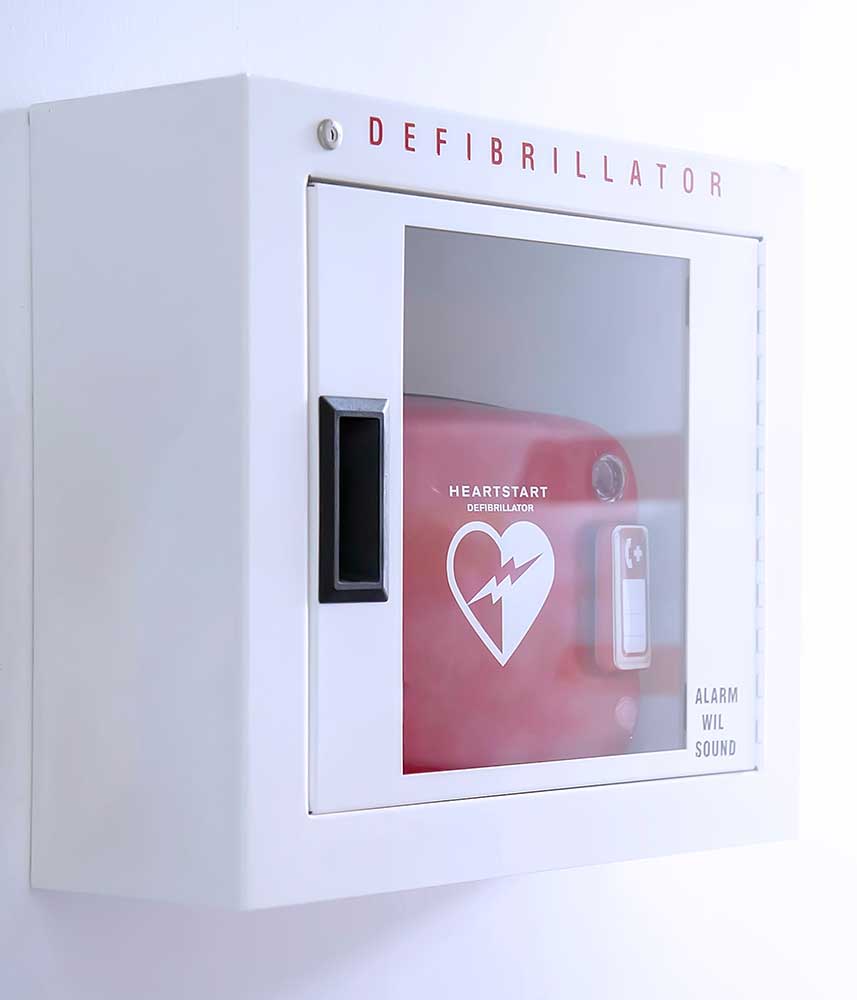
Emergency Resources and Procedures
San Jacinto College is committed to keeping our campus as safe as possible for our students and staff. While emergency incidents are impossible to predict, there are resources and procedures that can help resolve certain campus emergencies.

Alert Me!
4 Steps for Using a Blue Light Phone
-
Locate the Blue Light Phone on campus by looking for the blue light at the top of the pole or for the yellow box.
-
Locate the red button.
-
Press the button to call San Jac Police.
-
Communicate your emergency or concern to San Jac Police.

Emergency Aid Stations
Gun-related Resources and Procedures
Shelter in Place
In some emergencies like chemical leaks, intruders, or threats, it might not be safe to leave a building or classroom. Instead, the best thing to do could be to stay inside and find a safe place. This is called "sheltering-in-place." In these situations, the Office of Emergency Management will declare a Shelter-in-Place action. Building occupants will be instructed to stay inside the buildings until an all-clear notification is received.
At San Jac, we want to help you stay safe in all situations, however, there are two that are more likely to happen. Here's what you should do to shelter in place for each of these situations.
Severe Weather
- Stay indoors, or if outside, go to the nearest building and take cover.
- Close all windows and doors.
- Stay away from windows when possible. If available, lower blinds and/or curtains.
- If radio or television is available, turn it on for continuous updates, (KTRH 740 AM).
- Do not leave the building until you receive official notification that the danger has passed.
- If under a tornado watch, take refuge in an interior area away from windows and glass.
Chemical Exposure
- Stay indoors, or if outside, go to the nearest building and take cover.
- Close all windows and doors.
- Stay away from windows when possible. If available, lower blinds and/or curtains.
- If radio or television is available, turn it on for continuous updates, (KTRH 740 AM).
- If eyes, nose or throat becomes irritated, if possible, protect your breathing by covering your mouth with a damp cloth. Take frequent shallow breaths and stay calm.
- Do not leave the building until you receive official notification that the danger has passed.

Clery Act at San Jac
Mental Health Resources
Employees
Off-campus Resources
Since students live off-campus, they may face emergency situations that need immediate attention. It is important to know what available off-campus resources can provide you with assistance. Here are some off-campus resources including local emergency services, community organizations, and support groups that can offer you aid.
5 Off-campus Emergency Management Resources
-
City of Houston Office of Emergency Management
- Phone: (713) 884-4500 or 311
- Website: https://www.houstonoem.org/
-
Harris County Office of Emergency Management
- Email: ask@oem.hctx.net
- Website: https://www.readyharris.org/
-
La Porte Office of Emergency Management
- Phone: (713) 475-5588
- Website: http://laportetx.gov/1145/Office-of-Emergency-Management
-
Pasadena Emergency Management
- Phone: (713) 475-5588
- Website: https://www.pasadenatx.gov/185/Emergency-Management
-
Texas Division of Emergency Management
- Email: https://tdem.texas.gov/
- Website: https://www.tdem.texas.gov/
Preparedness Resources
National Weather Service
Phone: 281-337-5074
Website: https://www.weather.gov/hgx/Ready.gov
Website: https://www.ready.gov/plan
Community Resources
BlueCross Blue Shield 24/7 Nurseline
Daya Houston Confidential
Gulf Coast Community Services Association
Phone: 713-393-4700
LGBTQA+ Resources
LGBT National Help Center
Phone: 888-843-4564
Legacy Community Health
(Health services)
Phone: 832-548-5000The Pink Giraffe
(Shelter and community)
Phone: 713-929-9219Tony's Place
Phone: 713-678-0733
The Montrose Center
(Counseling, housing, anti-violence services and more)
Phone: 713-529-0037
